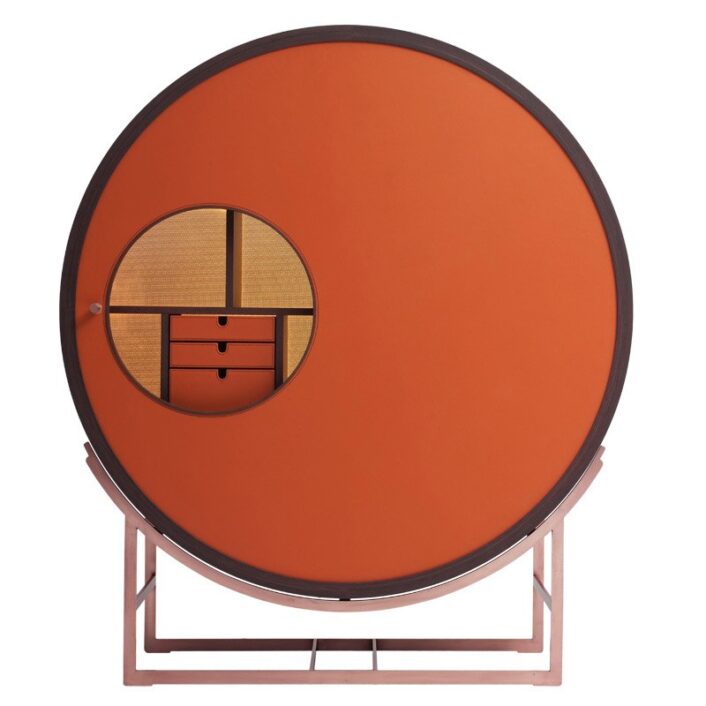“In ‘Lilium’, I explore the relationship between the ordered and chaotic; the geometric and the lyrical; the perfect, effortless symmetry of the bulb, the regulated, controlled element and its freed form as it reaches through and beyond. The Lilium series is both a study and an expression of the relationship between the beauty we create and the beauty we allow to happen; the beauty we participate in creating and the beauty we quietly observe.”
Design
The Sculptural Furniture of Joseph Walsh
Joseph Walsh Studios has created a strong following of collectors and admirers since 2008. The Duke of Devonshire’s collection at Chatsworth House is widely celebrated among Walsh’s many collectors.
Joseph Walsh (b. 1979) is a self-taught furniture artisan who learned the art of woodworking from his grandfather; His “furniture references nature with its free-flowing curves, and tendril like imagery” . At the age of 20, he founded his own studio and workshop in County Cork, Ireland.
Now, Walsh has nearly 20 employees of Japanese, French, Israeli, and English heritage. With such a diverse group in the studio, comes a mix of training, technique, and knowledge.
Courtesy of The Irish Times & Architectural Digest
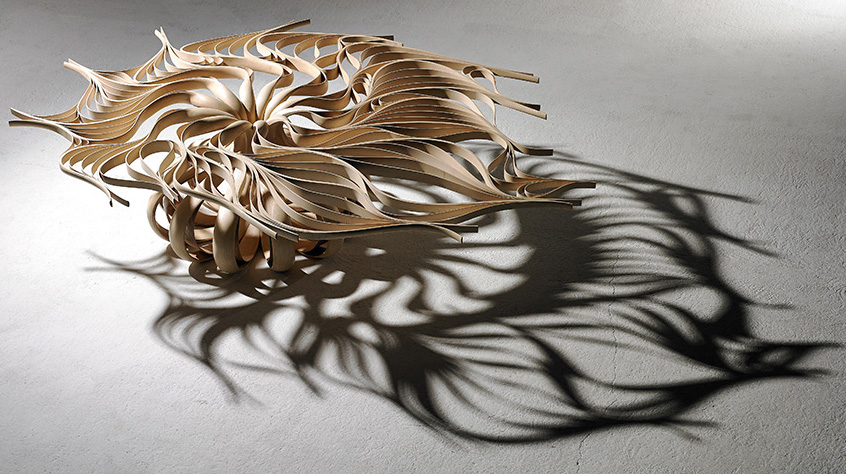
Joseph Walsh, Lilium I, Designed 2014, Olive Ash, 128″ L x 84.6″ W x 29″ H, Unique.
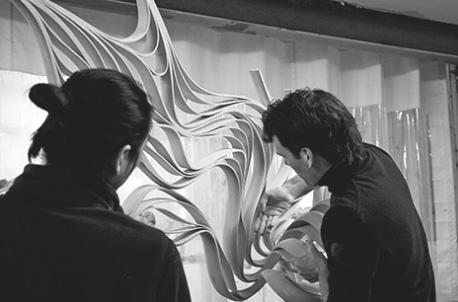
Walsh and his team study the layering of the wood for the Lilium I.
Courtesy of Joseph Walsh.
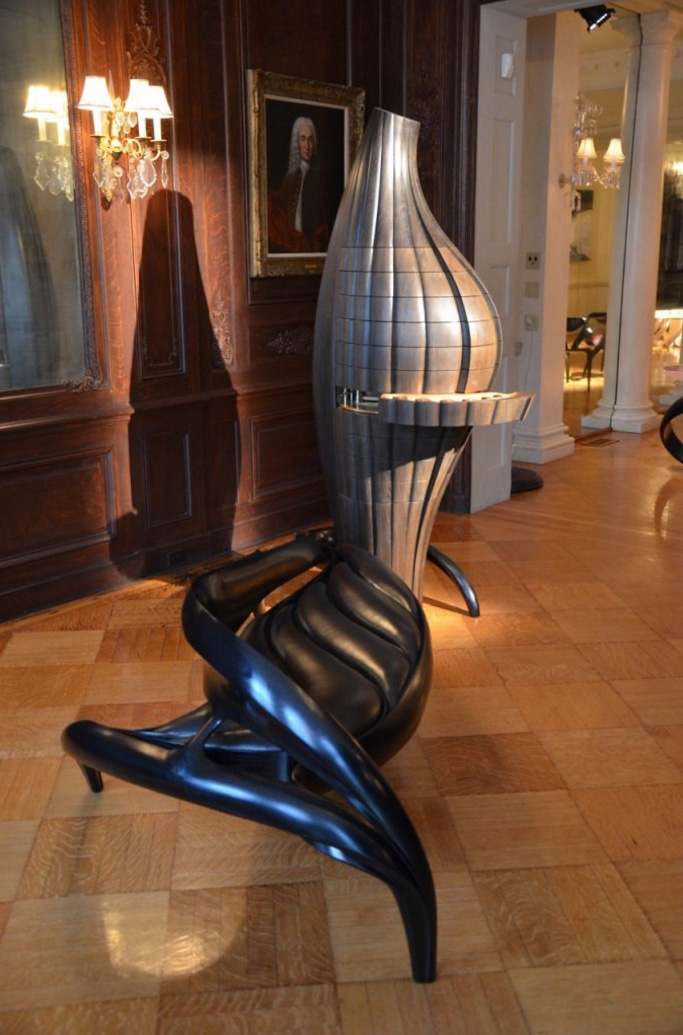
Joseph Walsh, A Piece of Time, 108″ High, Oak and Pear wood, Unique.
Image courtesy of Dezeen.
Earlier this June, Joseph Walsh Studio showcased a commissioned watch cabinet and intertwined bench to house the timepiece collection amassed by a father and son. The American Irish Historical Society hosted the Reveal exhibition, which coincided with the NYCxDesign festival.
This unique and unusual commission is called A Piece of Time. Walsh and his team sculpted it from fumed oak with drawers carved from pear wood and detailed in suede. When the compartments are open, one can see the internal bronze workings.
The sculptural cabinet is shaped like a “bulging seed case,” and is over 6 feet high. It holds 108 timepieces in separate compartments over 11 levels. This custom design was commissioned by a father and son who over the years amassed a sophisticated watch collection. Walsh designed a seat that would wrap around the sculpture, providing a space where father and son could rest and reflect upon the history of their shared pursuit.
Thanks to Dezeen for their coverage of the REVEAL exhibit at the American Irish Historical Society.
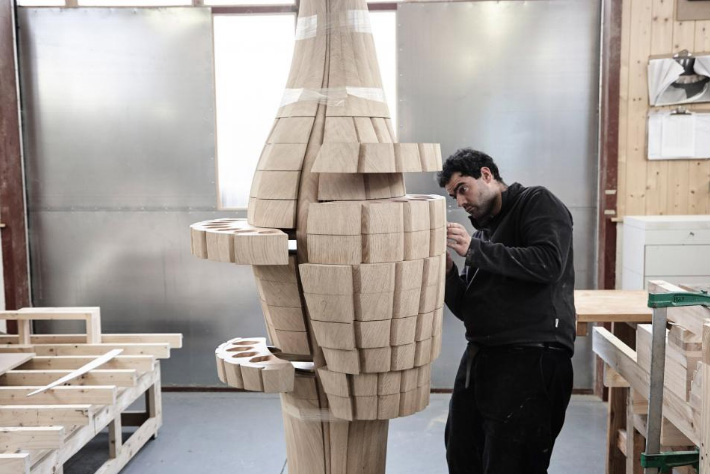
The watch compartments are housed within the vessel among 11 levels. The internal mechanisms of the vessel are finished in bronze, providing a completely artistic experience.
Courtesy of HOMECRUX.
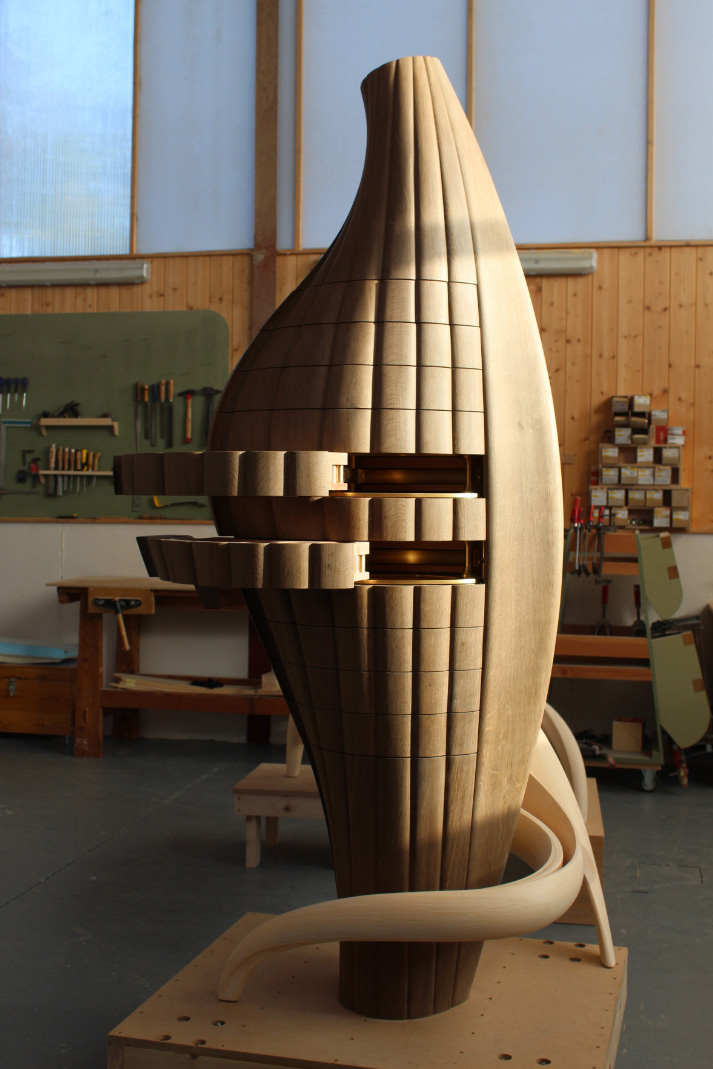
The bench encompasses the vessel with gracefully layered ribbons of wood, providing a serene space to take in the collection and A Piece of Time.
Courtesy of HOMECRUX.
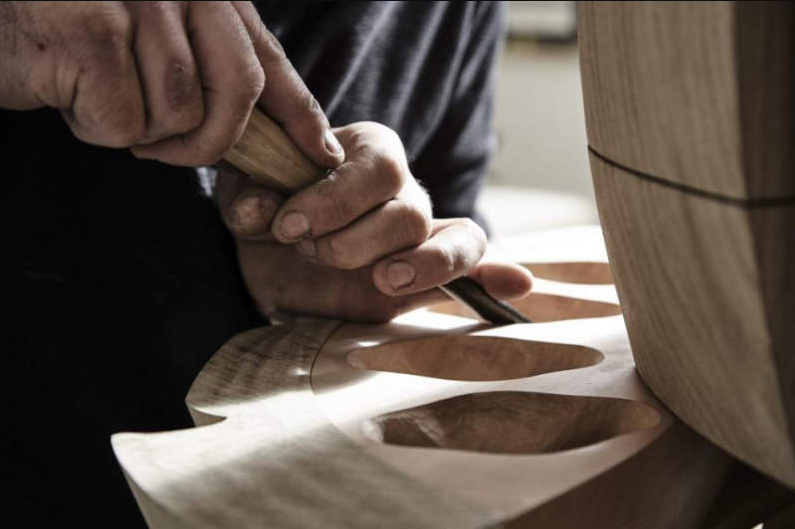
Hand-carving watch compartments, a completely bespoke work of art.
Image by Dezeen.
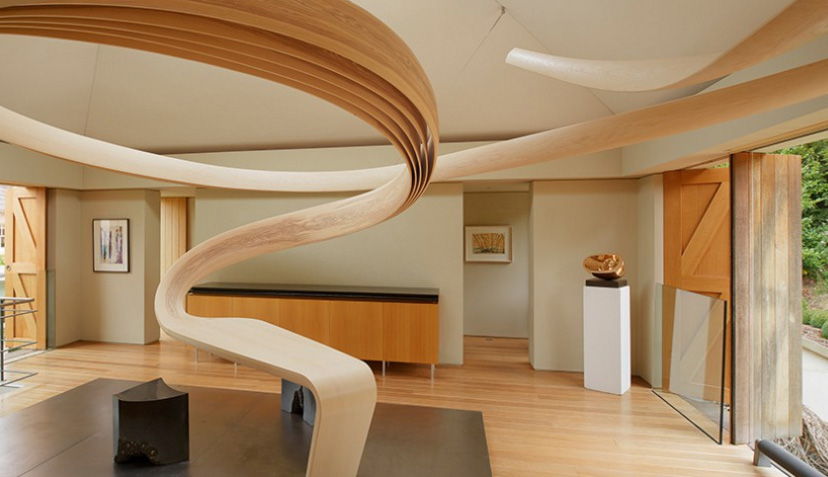
Joseph Walsh, Magnus Celestii, a sculptural desk that spans from the floor to the ceiling, Designed 2014, Olive Ash finished in white oil, Desk 118.1 L x 151.5 W x 244.4 H , Shelf 61 L x 171.2 W x 196.8 H.
A unique creation by Joseph Walsh’s studio. Master Maker is Remi Behr (2014), Assistant Makers Benjamin Lebouc, Robert O’Keefe, and Barry Dennigan.
Courtesy of Joseph Walsh Studio.
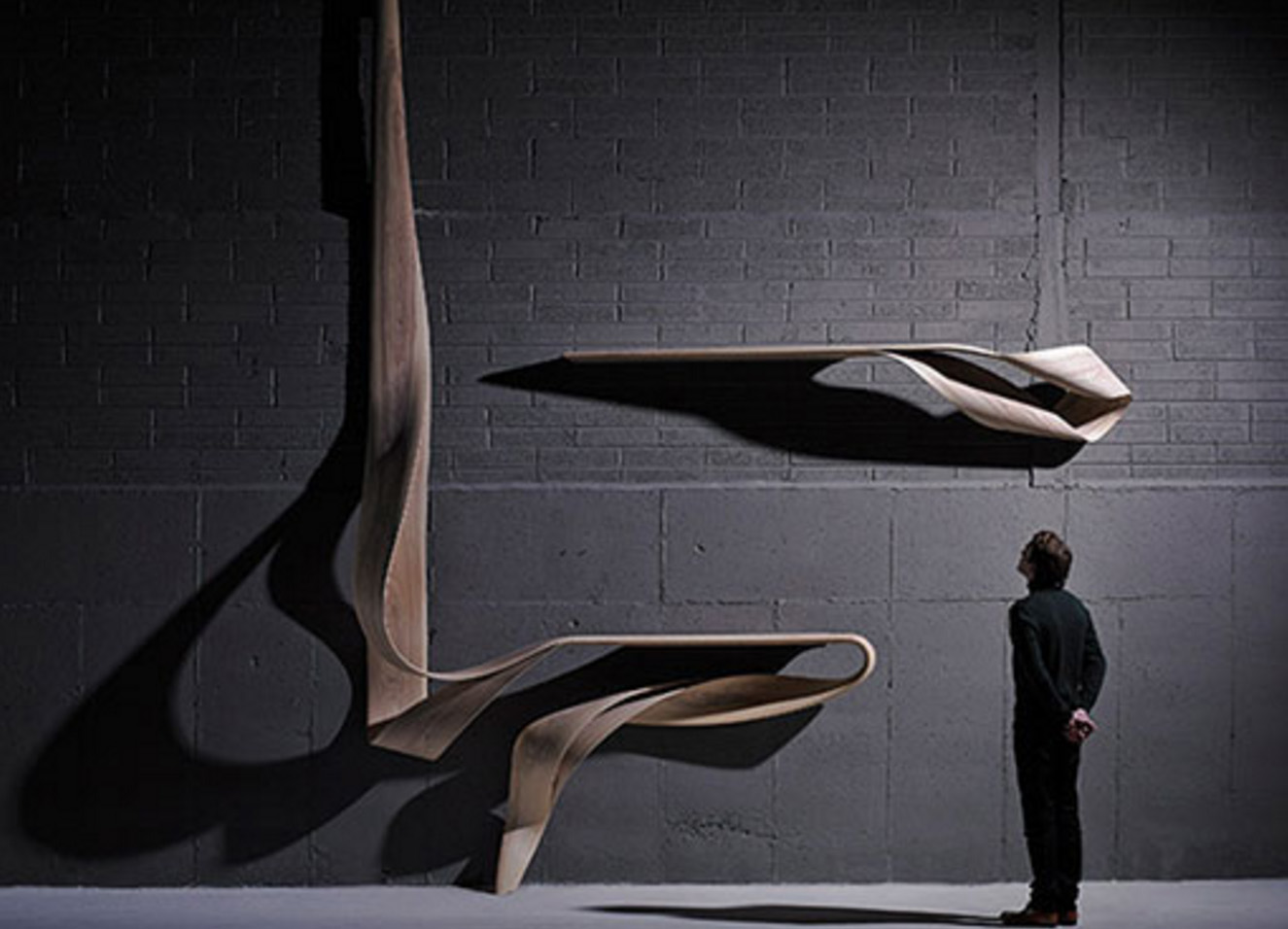
Joseph Walsh, Enignum XIII Shelf, pair of shelves, Designed 2013, Olive Ash finished with white oil, Shelf A 25″ D x 106″ W x 196″ H and Shelf B 19″ D x 114″ W x 191″ H. Enignum XIII now graces a private collection in India.
Courtesy of Joseph Walsh Studio. Master Maker Remi Behr. Assitant Maker Benjamin Lebouc.
Early in his career, Walsh’s affinity for wood was born out of access. While he does work with other materials, such as resin, he explains wood as, “A warm, natural material that records itself in its grain patterns. There is much traditional knowledge and mastery, yet it has so much potential for innovation.”
“Model-making is important to me, bending the wood, manipulating it, seeing what I can create three-dimensionally within the material’s potential. This sometimes sends me in unexpected directions but I work in a very free and fluid way.”
Thanks to The Financial Times.
